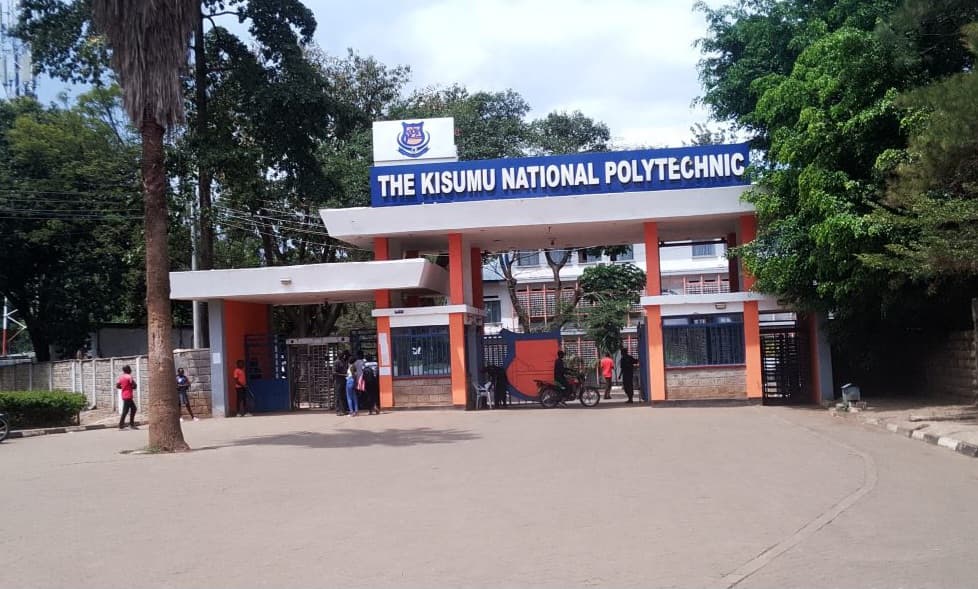We're loading the full news article for you. This includes the article content, images, author information, and related articles.
The institution reopens to examination candidates first, following a month-long closure triggered by student protests over alleged fee hikes and mismanagement, prompting a high-level intervention to restore stability.

The Kisumu National Polytechnic is scheduled to commence a phased reopening on Monday, October 27, 2025, nearly a month after its indefinite closure following significant student unrest. The initial phase will permit only students preparing for their final examinations back on campus to ensure minimal disruption to their academic calendar. According to Maryan Hassan, a representative from the Ministry of Education's Technical and Vocational Education and Training (TVET) Directorate, the remaining students will be recalled progressively as the administration and government officials work to resolve the underlying grievances that led to the protests. The decision was announced on Friday, October 24, 2025, following a consultative meeting involving the polytechnic's management, student leaders, and government representatives, including Kisumu County Commissioner Benson Leparmorijo.
The closure was enacted on Friday, September 19, 2025, after a week of sustained demonstrations that began on Monday, September 15. Students, led by the Kisumu National Polytechnic Students Association (KINAPOSA), accused the administration of levying irregular and exorbitant fees, mismanagement, and a lack of communication. KINAPOSA President Silas Adem stated that students were being charged approximately KSh 88,000 annually, a figure he claimed was KSh 16,000 above the government-stipulated fees for TVET institutions. Other grievances included delays in the release of attachment forms and alleged harassment of students. The protests escalated into clashes with police, leading to the administration's decision to shut down the institution to safeguard property and restore order.
In response to the crisis, the Ministry of Education and local government officials initiated a dialogue process. During the Friday meeting, TVET Directorate representative Maryan Hassan addressed the core complaint regarding fees, stating that a review of the institution's financial records showed no unauthorized changes to the approved fee structure. She clarified that certain levies in place were sanctioned by the government and are applied uniformly across all national polytechnics. However, she acknowledged that the ministry would take responsibility for how councils impose these levies. The government has assured all stakeholders that the concerns raised by the student body will be thoroughly investigated. One of the key demands from the students was the removal of Chief Principal Catherine Kelonye. However, Ms. Hassan confirmed that Ms. Kelonye would remain in her position while investigations continue. Kisumu County Commissioner Benson Leparmorijo urged students to embrace dialogue over confrontation, warning that any destruction of property constitutes a criminal offense.
The events at Kisumu Polytechnic highlight systemic challenges within Kenya's burgeoning TVET sector. Education analysts point to a breakdown in communication channels between institutional management and student bodies, coupled with rising economic pressures on learners and their families, as key contributors to such disruptions. The student leadership at Kisumu Polytechnic had earlier petitioned the Ministry of Education directly, citing a failure by local education offices to address their concerns and accusing the administration of stonewalling dialogue. The incident underscores the critical need for transparent financial management and robust, structured mechanisms for conflict resolution within tertiary institutions to prevent academic disruptions. As Kisumu Polytechnic reopens, the focus will be on the effectiveness of the renewed dialogue in rebuilding trust and ensuring a sustainable resolution to the issues that precipitated the month-long closure.
Keep the conversation in one place—threads here stay linked to the story and in the forums.
Sign in to start a discussion
Start a conversation about this story and keep it linked here.
Other hot threads
E-sports and Gaming Community in Kenya
Active 9 months ago
The Role of Technology in Modern Agriculture (AgriTech)
Active 9 months ago
Popular Recreational Activities Across Counties
Active 9 months ago
Investing in Youth Sports Development Programs
Active 9 months ago